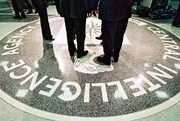 As part of what will be the most significant reorganization of the US intelligence community in decades, the Obama administration seems set to establish a new intelligence agency to spy inside America.
As part of what will be the most significant reorganization of the US intelligence community in decades, the Obama administration seems set to establish a new intelligence agency to spy inside America.
The new agency, which is expected to be part of the Department of Homeland Security, will be responsible for gathering intelligence on internal threats and will be modeled on Britain’s MI5. The concept is part of a series of sweeping recommendations being drawn up by the intelligence transition team which began work immediately after the election.
Team leader is John Brennan who is being tipped to be either the next head of the CIA or a new Director of National Intelligence. However, Brennan comes with some baggage in that he was close to George Tenet, the then head of the CIA, in the immediate aftermath of 9.11 when the controversial kidnapping and torture policy was agreed and implemented by the CIA.
Brennan became the interim head of the Counter Terrorism Center when it was set up in 2004 and then left to become CEO of the Analysis Corporation, a company that has been very successful in integrating open source data to sell to the intelligence community and other government agencies.
Since leaving the CIA, Brennan has distanced himself from Tenet and the Bush administration and has made clear in public that torture by the CIA and rendition of terror suspects to other countries for torture will be banned. In private, the 53-year-old Arabic-speaking Brennan is thoughtful and soft-spoken with none of the braggadocio that was a hallmark of many in the Bush Administration.
At a recent private meeting, he spoke about the urgent need for a coherent national strategy for the 16 US intelligence agencies that are largely an accident of history and bear little relation to today’s intelligence needs. At the same time, he would like to see an intelligence technology architecture that will allow for the effective sharing of data, visualization of information and an ability for the different agencies to create more timely and actionable intelligence for either offense or defense.
Near the top of that list is creating an agency that can better defend the homeland. Since 9.11, the FBI has been given that task but it is now widely accepted that it has proved impossible for the moribund Bureau to bridge the cultural gap between law enforcement (get the evidence to prosecute the bad guys) and intelligence (get the information to prevent an act before it happens). While the FBI will fight a fierce rearguard action to hold on to intelligence, it has very few supporters in the intelligence community or Congress.
The transition team is also expected to recommend that General Mike Hayden, the current head of the CIA, be fired. He was very close to Vice-President Dick Cheney and Condi Rice, the Secretary of State, and is seen as untrustworthy and an architect of the widespread wiretapping, considered by most to be illegal, that took place in America after 9.11.
General Keith Alexander, the head of the National Security Agency, will also be forced out. He has overseen the continued decline of NSA which has moved on his watch to become a technology business rather than a producer of good intelligence. Also, its record of running successful technology programs in the last decade is lamentable with billions of dollars being squandered on failed initiatives.
Finally, Mike McConnell, the amiable but weak Director of National Intelligence will also leave. The DNI post was created in an effort to herd the cats of the different agencies to work under a single leader. McConnell appointment in the first place was a recognition that nobody in the administration wanted either him or the post and so a weak man was put in place with insufficient power to be effective. The result has been a huge waste of time and money with very little to show for it.






Comments